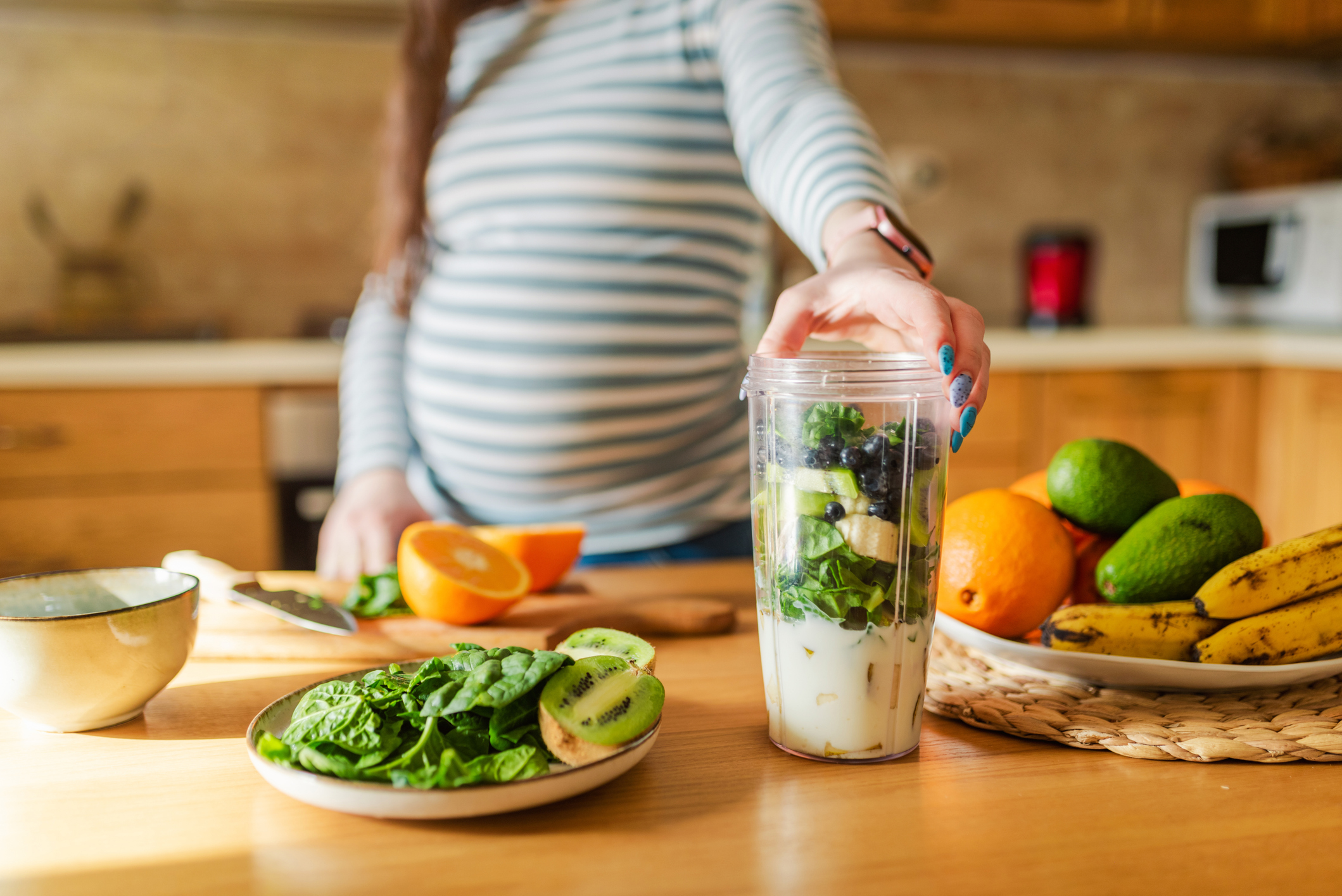How To Nourish Your Body And Your Little One

Dietary Advice For Moms-To-Be
Eating the right foods and getting the correct amount of nutrients is incredibly important when you are expecting. As you start this beautiful journey of pregnancy, choosing healthy dietary options is important to maintain nourishment and physical health for you and your baby. Below are some tips and advice for what you should prioritize eating during your pregnancy.
Have a balanced diet:
Every human should try to have a balanced diet, as our bodies require an array of different vitamins and nutrients. For each meal, having a balanced plate will help ensure you and your baby are getting a variety of nutrients every day. Aim for proteins, healthy fats, fruits, vegetables, and whole grains.
Stay hydrated
Drinking enough water everyday will help you in so many ways, physically and mentally. Drinking at least two liters a day is important for digestion, blood circulation, amniotic fluid creation, and hydrated skin.
Eat iron and calcium-rich foods
Iron and calcium are essential for increasing blood circulation and bone development during your pregnancy. Iron-rich foods include leaner meat, beans, spinach, fish, and lentils. Calcium-rich foods include dairy products, tofu, leafy green vegetables, and almonds.
Eat consistently throughout the day
Every pregnancy looks different. Generally, doctors recommend that you eat every three to four hours during the day, with three full meals and small meals/snacks in between. However, there are circumstances specific to each person and how their body handles food throughout the day. Learn to listen to your body and what your body needs!
Food options for when you are experiencing morning sickness
Many women suffer from morning sickness, especially during their first trimesters. Consuming enough calories is important to support your baby’s growth and development, as there could be future issues with the low birth weight and anemia. Try to eat small portions more frequently throughout the day so that the food is more calm on the stomach. Eating foods like avocados, cheese, nuts, and yogurt can be soothing foods and are highly nutritious.
Consume omega-3 fatty acids
Omega-3 fatty acids help with your baby’s brain and retina development. Eating foods like fish (salmon and sardines), flaxseeds and chia seeds can help with this critical nourishment.
Limit caffeine and avoid all alcoholic beverages
As we all know, limiting caffeinated drinks helps reduce the risk of pregnancy loss and prenatal issues. Limit your caffeine intake to 200 milligrams per day and try to go for decaffeinated drinks as much as possible. Alcohol can lead to premature birth, miscarriages, and complications after birth. Having no alcohol throughout your pregnancy is key to ensuring your baby’s health.
These tips are well-known but critical to your health while pregnant. Following these rules for yourself sets you up for a healthier pregnancy and less complications. Overall, listen to what your body needs and do what is best for your own body.
Call or Text Cheyenne OBGYN at 307-634-5216 Today!
Ready to embark on the journey of motherhood? Start by nourishing yourself and your little one with expert dietary advice from Cheyenne OBGYN. Eating right during pregnancy is crucial for your health and the development of your baby. Contact us now to learn more about maintaining a balanced diet, staying hydrated, and choosing the best foods for you and your baby’s well-being.
